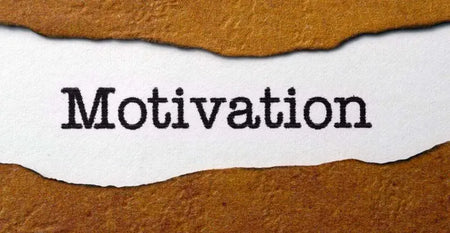Latest Posts

In Your Corner, Thinking Frames
Feeling Confused and Uncertain? Adopt These Five Life Principles
These can be confusing times. Deciding what to prioritize can be a challenge. Sorting options and choosing a direction aren't always easy tasks. Conflicting pressures and divergent forces too often drive confusion and uncertainty.
We want clarity. We need guideposts and guidelines to help us discern a path forward. We need the stability of a set of principles that can give us flexibility while not losing our way. Fortunately, there are places we can turn. Consider these five Buddhist life and leadership principles that have been around for more than 2500 years.
First, do the right thing and trust that the best outcome will follow. We like to feel in control, but life doesn’t always give us access to all the “levers” that'll align circumstances and determine outcomes. We can become so preoccupied with how things will turn out that we neglect to ask ourselves, What’s the right thing to do in this situation/circumstance? Yet, when we focus on doing what’s right, the outcome will likely take care of itself. Meanwhile, we’ll have the reassurance that we did what was right, not what was most convenient or comfortable.
Second, remain open and curious. Life experiences can be helpful when we confront situations and circumstances that are routine and familiar. They can provide thinking and action shortcuts. However, experience leads us to think we know more than we do and assume more than we should. Experience can close our minds to possibilities, options, and new approaches. Often called the “beginner’s mind,” this principle invites us to open our mind, to ask questions, and be curious, even when we think we know what the answers should be. A beginner’s mind helps us to free ourselves from assumptions, beliefs, and bias that can confine our thinking and limit our success.
Third, know your value and live your values: This principle invites us to be comfortable with who we are and appreciate the skills, talents, and intelligence we possess. When we know who we are, we act with confidence. We don’t need to continuously worry about how we’re perceived and what others might think. This principle also challenges us to live our values. We may not always measure up to our ideals, but we always have tomorrow to try again. Remarkably, when we know who we are and live what we value, others naturally respond positively and are more likely to follow our leadership.
Fourth, avoid becoming preoccupied with winning and losing. Of course, we don’t want to experience the pain of losing, the embarrassment of a misstep, or the loss of perceived status. On the other hand, becoming focused on hearing praise, finding pleasure, and seeking applause can skew our judgement and leave us making choices that are driven by perception rather than by substance and good judgement. We can become anxious, manipulative, and caught up in short-term thinking. Meanwhile, when we let go of preoccupation with winning and losing, we free ourselves to think more clearly and lead more freely with our values.
Fifth, practice empathy and compassion. Empathy and compassion lead us to focus our energy beyond ourselves. They expand our view and give us a larger context within which to understand our experiences and the world. Empathy and compassion promote insight and build connections. When we extend our caring to others, we feel better about ourselves, despite the circumstances and challenges we face.
Life will always present complications and challenge our thinking and choices. However, by remaining focused on doing what’s right, remaining curious, living our values, remaining empathetic and compassionate, and taking life as it comes, we can find the path that’s right for us.

Climate and Culture, In Your Corner, Teacher Learning
Surprising Benefits of Giving Back to the Profession
This may seem like a surprising time to think about giving back to our profession. These are challenging times. We feel challenged just to do the work and meet the responsibilities we already have. Yet, there are many important reasons to make the choice to give back, especially now.
Of course, education as a profession urgently needs advocates who understand its challenges, pressures, and problems and can speak to today’s reality, propose solutions, and share a positive vision. We need voices to advocate for young people to choose a career in education and be empowered to help make needed changes. We need voices of encouragement and support for each other. We can be that voice.
Giving back to the profession also means passing on what we’ve learned to aspiring and new-to-the profession educators. We can encourage others and offer perspective and advice to help them hone their practice and build their repertoire of skills and strategies. Our willingness to share our experiences can also provide insights and prevent others from making the mistakes and missteps from which we've had to learn.
Equally important, giving back offers significant benefits for us. Giving back reminds us why we chose this profession and reignites our passion and enthusiasm. Giving back increases our sense of purpose and generates feelings of meaning and significance. Meanwhile, we gain perspective as we reflect and share our experiences. Giving back reinforces the knowledge, skills, and wisdom we possess. Mentoring and coaching consolidates and brings to consciousness what we know, including what we may have thought we'd forgotten.
So, what does it mean to give back, and what are some ways we make a difference? Here are eight options to consider and places to start:
• Volunteer to work with student teachers and teacher interns. Young people who are considering and preparing to enter the profession need professional support and guidance. They also need good models and coaches to build their knowledge and skills.
• Mentor/coach new teachers and colleagues. As experienced educators, we have much to share that can ease the entry of new colleagues. We can be the resource they need and a guide on which they can depend.
• Teach a professional development or graduate level class or seminar. Even experienced educators need continuing education. Often the best information and ideas come from experienced colleagues.
• Volunteer for professional committees and work groups beyond our department or school. Engaging with other professionals offers opportunities to share our experience, contribute our creativity, and build our knowledge while contributing in a larger context than the classroom.
• Join a professional network. As we expand our network, we also can uncover opportunities to have an influence with and to learn from a wider group of educators. We also can gain access to increasing opportunities to advocate and influence the status and future of education
• Write an article/present at a conference/do a webinar or podcast. We might share a technique we've developed, a routine that works well, or an approach that’s particularly effective. Or we might address important issues or advocate for changes that will make a difference.
• Write a note about the contributions and difference making of a colleague. Noticing and sharing good things we see and recognizing excellence is a great way to give back. The note may be to the colleague’s supervisor, a newsletter, or just an informal note to the colleague.
• Offer to cover a class or assignment. Covering for a colleague may seem small, but supporting each other is a great way to give back. It can make a far greater difference than we might think.
Remember: Giving back is as much an attitude as it is a set of actions. Why we choose to do something can matter as much as what we do. An open heart, generous spirit, and readiness to help may be all that we can give right now. If so, it will be enough.
Share Your Tips & Stories
Share your story and the tips you have for getting through this challenging time. It can remind a fellow school leader of something they forgot, or your example can make a difficult task much easier and allow them to get more done in less time. We may publish your comments.
Send Us An Email













